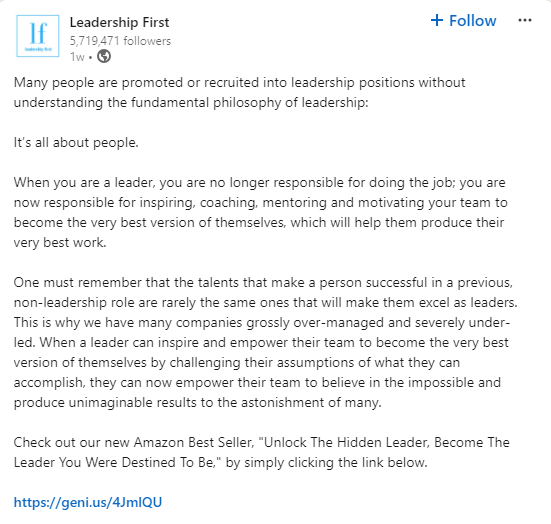BtoB Sales management: The Unchosen Symphony of Leadership
Navigating Followership, Charisma, and the Coaching Myth
In the grand symphony of professional growth, the dream of wielding the conductor's baton entices many. Leadership, however, isn't a solo performance; it's a symphony where the conductor emerges not by choice but by the resonance of followership. In this article, we'll explore leadership through the metaphor of a symphony, unraveling the intricacies of followership, the enchantment of charisma, and the myths surrounding coaching and mentoring.
Followership: The Crescendo of Leadership
Imagine a symphony conductor stepping onto the podium. The magical moment doesn't happen because the conductor decided to lead, but because the orchestra has chosen to follow. Leadership, akin to conducting, is an art of responsiveness. Here, the leader adjusts the tempo based on the orchestra's dynamics, becoming a maestro orchestrating a symphony of collective success. As a new Sales manager responsible for a team, one must perform with the given team, acknowledging that replacing all musicians isn't a viable option, highlighting the significance of responsiveness in this dynamic.
Charisma: The Melody That Resonates
In the symphony of leadership, charisma is the lingering melody in the hearts of followers. A charismatic leader is like a captivating soloist, drawing the audience into the music. The connection between leader and follower transcends the transactional; it is symphonic. Charisma, composed of elements such as being true to one's words and aligning actions with words, weaves the notes of inspiration and motivation, creating a resonant and enduring harmony.
The Myth of Coaching and Mentoring:
Consider leadership as the unseen baton guiding the orchestra. Often leaders are tasked with coaching and mentoring, akin to dictating every note to the musicians. However, effective leadership is about trusting the innate capabilities of each instrument. Much like a conductor allows musicians to shine within the orchestrated ensemble, leaders should recognize the uniqueness of their team members. While leaders could choose to take on coaching or mentoring roles, these require specific skills not naturally associated with the title of "leader." Stating that a good leader should also be a coach and/or a mentor may oversimplify the complexities of these distinct roles, potentially underestimating their importance.
In the symphony of leadership, the conductor doesn't choose to lead; they are chosen by the harmony of followership. Charisma becomes the enchanting melody that binds the leader and followers in a musical partnership. The myths of the superpowered leader being able to effortlessly coach and mentor while successfully reaching objectives contribute to a common misperception. As professionals navigate the symphony of leadership, embracing the nuances of followership and redefining expectations, they become the conductors of their own success, orchestrating a symphony that resonates with authenticity and excellence.


